Capacity Pairs
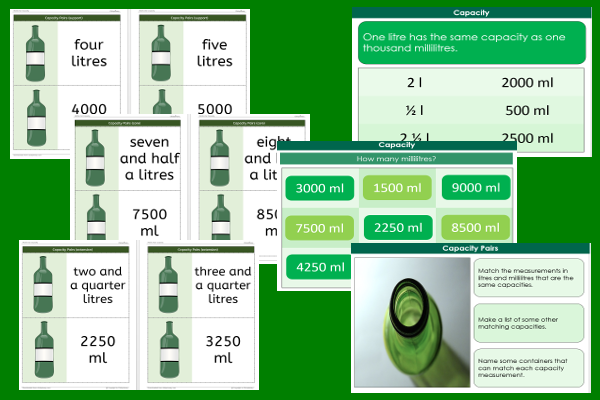
This maths teaching pack for Key Stage Two gets the children to investigate and record how to match some different bottle capacities that have been listed in both litres and millilitres working with whole and fractions of measurements.
The class can identify and model some of the number calculation skills that they can use to convert between each unit of measurement to match the capacity of bottles.
Download this teaching pack including classroom activities and an interactive presentation to investigate and record how to match some different bottle capacities that have been listed in both litres and millilitres working with whole and fractions of measurements
Activities in this teaching pack include differentiated sets of cards to identify and match capacities that have been recorded in litres and millimetres using whole number measurements for support ability levels and half and quarter fraction measurements for core and extension ability levels.
The interactive presentation gets the children to explore how to match capacities that have been recorded in both litres and millilitres when working with fractions of measurements.
This lesson is part of a maths scheme of work to get the children to explain and model how to convert between different units of measurement for capacity by comparing and matching capacities in litres and millilitres. There are teaching activities for shared learning, differentiated worksheets to support independent learning and interactive presentations to introduce concepts and key skills.
-
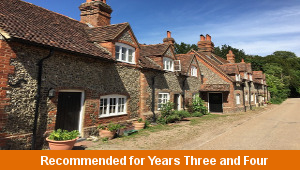
Cities, Towns and Villages
Research and present the history of a range of different buildings and people that are part of the local community using a school exhibition
-
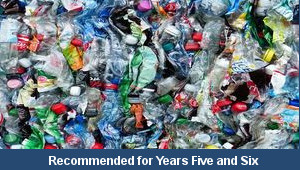
Recycling
Research and present some of the benefits and disadvantages that can be produced when recycling different materials at home and in school
-
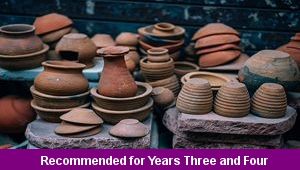
Viking Pots
Develop and refine a range of different art and design techniques when working with clay to make pots that represent Viking culture and traditions
-
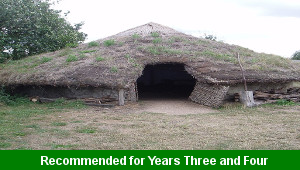
Bronze Age
Research and illustrate how life in Britain developed and changed during the Bronze Age including the growth of communities and trade
